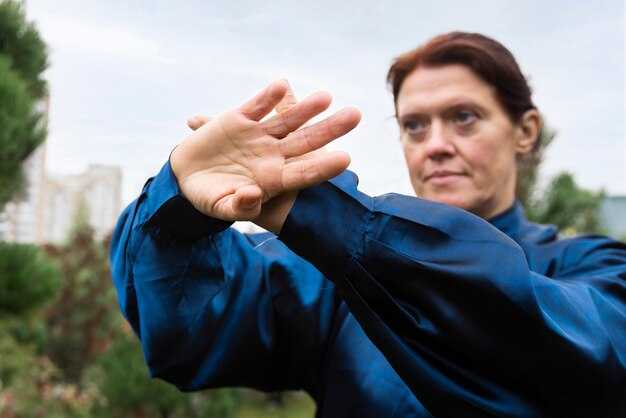When caregivers fail to give their children proper love, it can seriously distort brain development and warp a person’s sense of what is real. If that describes you, you might recognize the pattern: the first person who shows you kindness feels like “the one,” and you believe you must be with them immediately. An attachment wound drives you to cling to someone you barely know, often dissolving your boundaries. Later, once the illusion fades and you realize the person isn’t who you imagined, that same wound can trap you in place. You keep excusing their mistreatment and take the blame for their behavior. If this rings true for you, it’s vital to heal and reorient to reality. Today’s letter comes from someone I’ll call Sandra. She writes: Hi Anna — I have a question. About a year ago I met a man who seemed amazing. He had lost his father the month before; I had surgery a few weeks later. While I was recovering, he became everything to me. How do I know where this is going? Okay, I’ll get the fairy pencil and mark what I want to revisit on a second read. Let’s unpack what Sandra’s describing. He cared for me like he’d known me forever. From the start we spent a lot of time together; he visited my home every day. Even though it felt fast, it was a relief finally to have someone who wanted me. We began talking about marriage immediately. He said he wanted to marry me, so I booked premarital counseling. We did six weeks and then I began planning the wedding. Please don’t be upset with me, Sandra — I know I made mistakes. I began paying for things even before there was a formal proposal with a ring. He’d been out of work for months before we got together, but because he lavished me with presents, trips and attention, I didn’t think finances were a problem. He asked to postpone the wedding due to money, so I moved it a few months. By Valentine’s Day I was sure he would propose; if he didn’t, I planned to let go because I sensed he was lying. Eventually I caught him in many lies — I even learned he claimed to be single when he’d actually still been with his ex when we started dating, which he denied. Two months before Valentine’s, my anxious attachment flared, though I didn’t know that’s what it was at the time. The more I asked him what was wrong, the more he replied that everything was fine. I stopped believing him. In the days before I ended things, I asked a mutual friend whether he really wanted to marry me; the friend reported he seemed shut down and was doubting the relationship. My partner and I never discussed it. I texted him, asking if we’d be okay; he answered he didn’t know and needed to figure things out in his head — “no expectations” at the moment. I was triggered, blacked out from raw abandonment feelings, and broke up with him by text. He’d just lost a cousin the day before; the following day I was mortified at what I’d done and begged him to come back. He barely responded, only texting occasionally; he still won’t really talk with me. He said he felt abandoned while grieving and blamed me for leaving him, even though he promised to call and then didn’t. My son — who is eleven and not his biological child — was grieving too, and I asked him to just call my son to reassure him. He said he would, but only called a week later and missed him. He’d also agreed to cover wedding costs after I fronted vendor fees, but when I asked, he was evasive and said he’d pay when he had the money. I’m in therapy and working on myself. I’ve read about attachment and practicing self-compassion. My problem is that I keep replaying the early good moments and wondering why he shut down later. For a while I thought it was PMS, but now I see it was my attachment style that caused so much anxiety. I probably overwhelmed him with my emotional instability, but I still can’t figure out why he wouldn’t tell me what was wrong. Now that I know more about myself, I struggle with thinking my emotional problems ruined the relationship, yet his behavior — before and after the breakup — was cold. Why can’t I let this go? Was it me or him? I hear he’s still grieving his father nearly a year later. Sincerely, Sandra. Oh Sandra — this is heartbreaking and painful. I’ll help you gain clarity. Sometimes we need an outside friend to spot what’s glaringly obvious to everyone else. You met someone who seemed perfect: he had recently lost his father and showed up for your recovery after surgery. He visited every day, gave gifts and trips, and quickly spoke of marriage. That pattern is classic love-bombing. Whether he intended to manipulate or is simply emotionally damaged and only knows how to express care through lavish gestures, the reality is he didn’t give you steady, real attachment. He appeared to show up for you when you needed help — and I can relate; after surgeries I fell into a terrible relationship for similar reasons. As a single mom, when you’re physically vulnerable, anyone offering help, food, presence, or attention can feel like salvation, especially if your childhood lacked secure love. It’s natural to crave that. Regarding marriage: it sounds like you’ve longed to be married, and when someone immediately matched that desire, you jumped in. You did premarital counseling — what kind was it? That matters because good counseling should address major topics like money and children, which are frequent sources of marital breakdown. Agreement about finances and family planning is foundational; I wonder whether those conversations happened fully. Anxiety can trick us into believing that getting married will erase uncertainty. But marriage is not a fix — couples make vows, not miracles; people can get married impulsively (Las Vegas exists). Don’t beat yourself up for trauma-driven decisions. You began paying before a ring existed — that energy happens sometimes, especially when a single parent wants security. Your trauma was trying to turn shaky circumstances into something stable. You mentioned he’d been out of work for months before you met; unemployment can complicate things when someone is considering marriage, especially if you’re a single mother. He asked to change the date because of money, which shows some investment, but when you expected a proposal he didn’t deliver. There’s a scenario where a financially struggling yet sincere person might delay a ring — but I generally advise not rushing into marriage in less than about 18 months of intentional, honest dating. That timeline allows for serious conversations and realistic assessment. You said you “caught him in a lot of lies” — that’s significant. Repeated dishonesty is a profound red flag and a reason not to marry someone. Lying undermines trust and often signals that the person cannot be the partner you hope for. You also mentioned he lied about still being with his ex when you began seeing him — that suggests lingering entanglement or ongoing drama he hid from you. Your anxiety response — your red flags — were accurate. When you asked what was wrong and he insisted “we’re fine,” your instincts were right to doubt that. You sensed something was off; that was a healthy gut reaction. You asked a mutual friend whether he wanted to marry you; the friend said he was second-guessing. Yet you didn’t have a face-to-face conversation about it. If someone avoids discussing their hesitations while the other person is planning a wedding, that avoidance is a major warning sign. Your blackout from abandonment feelings — losing consciousness from the intensity of the panic — is serious. That kind of dissociation indicates deep past wounds and a nervous system that gets overwhelmed. Breaking up by text in that state was a consequence of being triggered. He reportedly had just lost a cousin, and I notice this guy is “always just lost somebody” in his life narrative. Some people use sudden bereavement as a way to create space when they don’t want to confront relationship truth; it can be an excuse to withdraw. The day after you broke up, you felt horrified and begged him to come back. That’s your attachment wound in action: one minute you push, the next you pull him in. His pattern of inconsistent contact — mostly texts, no meaningful conversation — and blaming you for “abandoning him while he was grieving” indicates he’s not reliably present. You asked him to reassure your son; he promised but delayed and missed calls. That’s hurtful and shows a lack of dependability. Regarding reimbursement for wedding vendors, prepare to accept that you may never see that money again. It’s a costly lesson about letting trauma-driven urgency dictate major life events. If you’re willing to transform this pattern, the loss can become a pivotal, if painful, turning point. The healthier path is slow, steady dating; take time to gather reliable information about a person, and only gradually open up about the future. In many cultures there’s an expectation the man will show clear intention — propose and buy a ring — and that often makes sense. You shouldn’t be punished for wanting security, and I’m not angry with you; I understand on a deep level. You have an eleven-year-old: that age is tender and transitionary. Introducing a new parental figure carries risk; when a stepparent’s behavior is inconsistent it can create emotional harm. If you’re considering a partner while raising a child, it’s essential to screen people carefully and take your time — not just a year and a half, but perhaps three years or more. There’s no rush to marry or cohabit. The partner worth choosing will be steady, kind, dependable, and reliably present — exciting in life, but not unpredictably painful. I, too, rushed into relationships in the past and later regretted it; healing that pattern took deep, sustained work over a couple of years with mentorship and spiritual/introspective commitment. Disorganized attachment is a trauma wound that can cause you to crave closeness and then push it away whenever you feel vulnerable. Childhood trauma is almost always at the root. If you manage your distress by repeatedly breaking up and reconciling, you create chaos for yourself and the person you’re with, and you likely inflict trauma on them as well. That push-pull fosters a trauma bond: someone who started out well becomes weakened by ongoing emotional abuse and can’t leave. Can two people caught in this cycle change? Turning now to another letter, from a woman I’ll call Sabrina: Hey Fairy — my childhood was chaotic. I had a sister with severe mental illness who was violent. My parents were distracted dealing with her and emotionally numb; they couldn’t say “I love you” or apologize. I wasn’t allowed to cry; talking about feelings was shut down. My mother was controlling and verbally abusive to me and my dad. I was ignored; as the youngest I was expected to act like an adult. I began drinking at eight or nine because it seemed to quiet the chaos. I stopped caring about the violence at home and started running away — a habit that persists now in different forms, like breaking up and leaving when triggered. I’m ten years sober and finally feel ready for a healthy relationship. How do I know when to give up on a relationship? I have so much fear and can’t trust my instincts because they almost always tell me to run. I began a long-distance relationship with Bob three years ago — of course I chose someone emotionally and physically distant since he being available was scarier to me. In the early phase he was very into me; I was afraid and pushed him away. I’d break up and run, and after six months he told me he couldn’t keep dealing with that and blocking behavior. Each time I felt hurt — which was often because I’m hypervigilant about preventing abuse — I’d flee. I decided to grow up: I told him I wanted the relationship and stopped breaking up as much. It improved somewhat but stayed unstable. Reasons I’d break up ranged from him cancelling plans last minute, to his temper in arguments, to emotional unavailability, which mirrored my parents. Eventually I committed more fully, and it seemed he stopped trying. He said he’d given up because of the frequent breakups, though he didn’t stop the cycle entirely. The more I tried to open, the more he shut down. When I reached my limit and left, he often came back; I wondered if he was addicted to rejection. He finally didn’t return only because he was dating someone else; when that ended, he came back. I went no contact for six months; he texted about once a month but I ignored him. During that period I missed him and hoped no contact would help me move on; it didn’t. I wanted an apology for him dumping me — it felt like abandonment. My son lost his father at the end of our relationship and I reached out to Bob for support; he didn’t check on me for three days and rarely after that. During that traumatic time, many people in my 12-step community offered love and support; I felt blessed by them. After six months of no contact he sent a grudging apology by text — “I f—ed up” — and we reconnected. We talked like old friends; he asked me out repeatedly and took me on outings that felt like dates. I asked him whether he was trying to date me; he said he wasn’t ready. When I tried to limit time with him so I could date others, he didn’t like it but said he was afraid and wanted to date, so we began seeing each other. He agreed to couples therapy and seemed to change; he showed growth. Therapy was tough and we focused a lot on the past; we only made it to three sessions before he broke up with me. He returned quickly, and now the pattern is reversed: he breaks up with me frequently instead of me breaking up with him. I know it sounds insane, and it is clearly unhealthy. I still struggle to trust he loves me. He says he loves me and demonstrates it through kindness, support and quality time — except when he doesn’t. When he’s dysregulated, he completely shuts down. I don’t know when to give up. He claims to see us marrying, and I learned he bought an engagement ring but then backed out, telling a friend it wasn’t the right time. I would love a life with him, but we can’t stay together long enough to finish therapy. He walked out of a session halfway through. I doubt he can regulate once triggered. I can be bossy, demanding and needy; he says I trigger him. He’s willing to do therapy and whatever it takes, but it’s exhausting. My sleep, work and ability to be present as a parent are suffering. We don’t live together, and his busy schedule causes fights: when he tries to win me back, suddenly his calendar opens up. He likely has complex PTSD and is beginning to admit he needs healing. He’s a great father to his child and has shown notable improvement. Please be honest. Okay, Sabrina — this is chaotic and, yes, it sounds insane. Your childhood set up a pattern common to people with avoidant or disorganized attachment: you wanted closeness but fled when it felt real; the more you sought security, the more your history pushed you to sabotage it. Now that Bob pulls away, that’s what keeps you engaged. If he would consistently stay and state his commitment clearly, you would likely find a way to stay — but I didn’t hear evidence of a wholehearted, sustained change. Attachment wounds are hard to heal and require serious, sustained work and self-awareness. Here’s some tough love: repeatedly breaking up with someone is emotional abuse. If you repeatedly end things, it pains them and creates trauma; they begin to crave stability even while being hurt by your behavior. I think it would be healthier for him to leave this relationship. I can’t know his side, but his behavior suggests a trauma bond: he clings despite being hurt, trying to protect himself by holding boundaries while sometimes giving in. Focus on you, since you wrote this letter. Your repeated breakups have likely caused real harm to him and to your child. You need to take responsibility for that. Before being in another relationship, get serious about your own healing — perhaps through 12-step programs like Sex and Love Addicts Anonymous, therapy, and committed mentorship. Kids learn patterns from watching their parents; they feel the nervous system effects even when they don’t understand the words. You don’t belong in an unhealthy relationship. Ending it doesn’t require condemnation; it’s a boundary you can set to protect both of you. It may mean going no-contact and not staying friends, because your history shows poor boundaries and the tendency to keep the cycle alive. When you disentangle, you’ll have space to heal and rebuild your capacity for a peaceful, loving partnership. It might be lonely at first, but solitude can be a healthy crucible for growth. Set him free — he needs it and so do you. If you want to pinpoint self-sabotaging behaviors, there’s a free download about self-defeating patterns that can help. For trauma healing, the point where “the rubber hits the road” is identifying what you do to push people away once you’re dysregulated. Many adults who experienced abuse or neglect are drawn to partners who cannot truly be present — people who don’t care, aren’t available, or are outright inappropriate. Even when you know someone is bad for you, stepping away can feel impossible. If this is you, know you’re not alone. My next letter is from a woman I’ll call Tanisha. She writes: Hi Anna — thank you for your work; I appreciate your straightforward approach to CPTSD. Right now I’m in a flirtatious pen-pal situation with someone who is in…

Okay — jail correspondence isn’t something to treat lightly. I like talking to him, but I’m not naive about where this is likely to lead: either him expecting a relationship after his release or asking me for help while still incarcerated. I’ve been marking things to revisit on a second read, but for now I’ll just go through what you wrote. Either he’s imagining a future with you, or he’ll want support while inside — neither option appeals to you. You admitted you’re using him to fill a void and can’t stop. When I say I enjoy it, I mean those conversations temporarily soothe a deep loneliness that lives inside me every day.
I’m 25, female, college-educated, childless, and still trying to find my place in the world. I’ve let myself be distracted by one man after another because life feels overwhelming; some days I’d rather stay in bed and invent feelings from people who write back. I’m currently unemployed but actively looking and interviewing. After watching one of your other videos I know this pattern isn’t healthy and that I’m capable of better, yet I can’t seem to change it. I honestly don’t understand why.
I went to college hoping to escape a chaotic home. I left my mother’s care at ten because she was chronically unstable and went to live with my grandmother. My childhood included verbal and physical abuse, and there were addicts and alcoholics in the household. Fear and uncertainty marked those years — I felt imprisoned, and that feeling persists. I managed to escape for a year but work became too much and I abruptly quit; that happens a lot, and I had to return home. I struggle every day and am angry with myself.
To feel better, I initiate and accept advances from men I don’t take seriously and would never marry. But I’m so lonely it makes me cry. I don’t speak to the people I live with because they remind me of my childhood. I’ve lost close friends because I push them away, and eventually I push away the men who show interest in me. They all say the same things — that I’m “crazy,” that my mood swings, that I’m snappy — and I want to know what my next step should be; spiritually I feel like I’m dying.
Here’s what I hear: you have a flirtatious pen-pal arrangement, but this pattern repeats across your life. You accept advances from people you don’t intend to commit to, so you already see the contradiction. After the childhood you described, it’s understandable you crave a backup source of connection — somebody who can hang out or be a contact when things feel unbearable. Yet when serious emotional needs arise you can’t meet them; you want closeness but push away suitable partners and form attachments to people who are unavailable. That’s a common pattern for people who grew up with trauma — it’s normal, and not a moral failing.
First, try to let go of shame. You didn’t choose to be treated poorly as a child; you didn’t ask for neglect or abuse. Now at 25 it’s time to steer your life in a different direction. No partner, however good, is going to “save” you — the healing you need must happen inside. The pain you’re feeling because your old strategies no longer work is actually a sign that change is possible. That discomfort is often the catalyst for growth. You said you know what you should do and yet can’t follow through — that’s what I call a lack of power. In the work I do, power means the inner strength to see the path forward and act on it: the ability to do small essential things even when you feel depleted. Sometimes that power wells up like a spring inside you, and when it does you feel an aversion to the old coping strategies. The fact that you wrote a letter for help already shows a great deal of courage.
About the man who’s incarcerated: if you have the strength, it would be wise to end that contact kindly but firmly. It’s not his fault; he may have valued the connection, but you shouldn’t sacrifice your life for a relationship that cannot be reciprocal. As a 25-year-old woman you carry a potent capacity to build a full life: to have a committed partnership, to earn a living, to raise children if you wish, to create and contribute. That is a precious potential and deserves protection rather than giving it away to someone who cannot be present.
I used to smoke heavily as a coping mechanism — a quick escape when life felt overwhelming. Crutches like cigarettes or relationships with unavailable people are soothing because they momentarily relieve stress, but they bring consequences. For those of us with complex trauma, other people can be triggering in ways that dysregulate us neurologically, making it hard to manage emotions and leading to mistakes. It’s understandable to avoid in-person relationships if they consistently throw you off balance.
I once believed that marriage would fix my problems, too. Commitment did bring healing, but it didn’t erase my attachment wounds or anxiety overnight. Even after nearly a decade of marriage, the first years brought awakening and difficulty as old fears surfaced. The truth is: wherever you go, there you are. Healing is a process, and it gets easier and moves faster if you face it rather than run away.
That’s why I emphasize a daily practice — a simple twice-daily routine to clear the inner chatter: the critical, tired, shaming voice that runs on repeat in our heads. For people with complex trauma, that inner monologue is louder and more damaging. A daily practice creates space to grow and quiets the noise one little piece at a time.
It’s also crucial to spend time with other women who are healing from trauma and unhealthy relationship patterns. Peer support won’t “fix” you, but it lets you be honest without shame, gain perspective, and stop calcifying in secrecy. If you feel alone, connecting with women who truly accept you can be life-changing. Consider groups like Al-Anon, ACA (Adult Children of Alcoholics), or Sex and Love Addicts Anonymous. Try several meetings and see what resonates. These groups are free and grounded in mutual support; they’re about recovery, not dating. If you attend mixed groups and someone hits on you, set a boundary — these spaces are for healing. When people take such programs seriously and participate regularly, it often sparks real, hopeful change.
In the short term, if you want guidance about dating specifically, there are programs designed for people with childhood PTSD that teach how to set a clear standard for what you want. Trauma survivors are used to selling themselves short, so a deliberate approach to dating — aiming high and refusing what doesn’t fit — is essential. The course I run (link below in the description originally) helps people learn to date according to a vision of what they genuinely need, and to decline those who don’t meet those basic criteria. At first it feels hard, but you soon wonder why you ever considered anyone who didn’t meet your essentials.
Attachment styles play a big role here. Some people become anxious in relationships and constantly seek reassurance; others are avoidant and flee when things get intense. For those who oscillate between longing and shutting down — a disorganized or fearful-avoidant attachment — relationships become confusing and painful. You described exactly that: swinging between intense pursuit and sudden withdrawal. If untreated, this pattern can make deep, lasting love almost impossible.
Now, about the separate letter from “Rain”: she’s had a crush on a considerate man at work for years, they share interests, and a mutual friend recently checked if he was interested in asking her out. She panicked, declined out of fear and embarrassment, regretted it, and then started acting erratically — flirting, dressing up, giving the cold shoulder when she felt threatened, then returning to friendliness and feeling ashamed. Rain’s background includes a neglectful, alcoholic mother, sexual boundary violations by a stepfather, an early pregnancy, and an abusive long-term relationship that required a restraining order to end. She’s never had a truly loving partnership and wonders whether she’s ruined any chance with this decent man.
To Rain: you’ve been through a tremendous amount of trauma, and it’s understandable this is messy for you. I don’t feel you are ready for a stable romantic relationship right now. Even if this man is kind and interested, your active trauma responses could hurt him emotionally. Real love means caring about how your presence affects someone else — being someone who improves their life, not someone who creates instability. There’s hope, but heavy unpacking is needed before you can show up reliably in a relationship.
Having said that, there’s a small possibility that if you commit to recovery for a year or two and you remain in each other’s lives, something could develop. But given your disorganized attachment and impulsive pattern of jumping in and out of relationships, entering a new romantic relationship now might be risky for both of you. Consider focused support: therapy, group work, and possibly a 12-step group like Sex and Love Addicts Anonymous. If you try SLAA, attend women-only meetings at first and avoid dating within the program; the point is healing, not romantic connection.
If you were to interact with the coworker again, honesty might be the kindest path. Tell him briefly about your past traumas and that you’re doing the work to heal. Express interest but be clear you’re in recovery and bringing some instability right now, and give him the freedom to decide his path. Sometimes people who enter our lives at a hard moment encourage growth and recovery even if they don’t become our lifelong partner — they can play a beautiful role by inspiring us to step up.
In recovery, the person you are and the person who’s right for you will evolve. Often the life that unfolds once you’ve done the inner work is “beyond your wildest dreams.” Right now, however, trauma is shaping your perceptions and choices, making it hard to see what a healthy future relationship would look like. My final practical advice: when you stop leaning on old crutches, hard feelings will surface. You need a tool you can carry with you everywhere — a daily practice or grounding routine — and trusted peers and programs that support steady healing. These practices change consciousness incrementally, and the hope they bring is profound.
For anyone in acute pain trying to change, be gentle with yourself. Expect feelings to come up when you drop old habits, and have tools and people ready to help you through the discomfort. A simple daily practice, supportive peer groups, focused therapy, and firm boundaries around unavailable people will create the conditions for real growth. Healing is possible, and you deserve it.


 Childhood Bonds With Parents Drives You Now (4-Video Compilation)">
Childhood Bonds With Parents Drives You Now (4-Video Compilation)">

 Comment construire une relation amoureuse avec un(e) évitant(e) sans se blesser">
Comment construire une relation amoureuse avec un(e) évitant(e) sans se blesser">
 ARRÊTEZ d'essayer de faire en sorte que les gens vous respectent et FAITES CELA à la place">
ARRÊTEZ d'essayer de faire en sorte que les gens vous respectent et FAITES CELA à la place">
 La vérité choquante sur la raison pour laquelle les évitatifs vous dédaignent (et testent votre amour)">
La vérité choquante sur la raison pour laquelle les évitatifs vous dédaignent (et testent votre amour)">
 Voici mon histoire sur la façon dont j'ai appris à aider les autres à guérir leurs symptômes de trauma.">
Voici mon histoire sur la façon dont j'ai appris à aider les autres à guérir leurs symptômes de trauma.">

 Stand Up For What Your Soul Knows You Need (4-Video Compilation)">
Stand Up For What Your Soul Knows You Need (4-Video Compilation)">
 Relationship Success in Just ONE Question! Will you Ask It?">
Relationship Success in Just ONE Question! Will you Ask It?">
 DYSREGULATION: This Core Trauma Symptom COULD Be Why Your Healing Is Stuck">
DYSREGULATION: This Core Trauma Symptom COULD Be Why Your Healing Is Stuck">
 The Hidden Shift That Forces An Avoidant To Finally Apologize For Hurting You">
The Hidden Shift That Forces An Avoidant To Finally Apologize For Hurting You">
 Here’s why Boundaries are ESSENTIAL!">
Here’s why Boundaries are ESSENTIAL!">